Pragna Patel has been a powerful advocate for women’s rights for over four decades. From 2009-2022, she was Director of Southall Black Sisters (‘SBS’), an anti-fundamentalist, anti-racist and feminist campaigning organisation for black and minority women. She will be giving the National Secular Society’s Bradlaugh Lecture on 1 October 2022, on the topic of ‘dissent and resistance in defence of women’s rights and secularism’.
I spoke to Pragna via Zoom, to find out more about her story, motivations, personal challenges, attitude towards religion, and the changing nature of the problems facing women of minority backgrounds since she first became involved with SBS in the early 1980s.
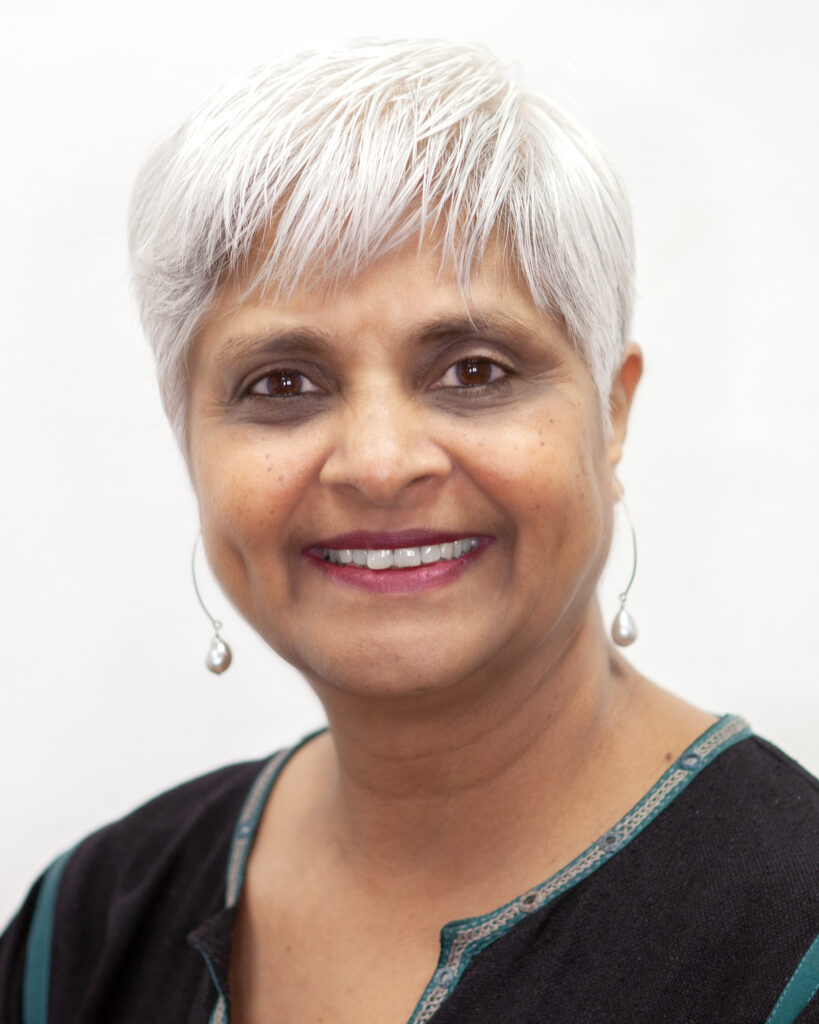
Freethinker: What motivated you to become involved in campaigning for minority women’s rights?
Pragna Patel: I grew up in a traditional Indian family where women were expected to conform to strict gender roles and patriarchal norms – where they were expected to get married, to have their marriage partners chosen for them, to stay in the home and look after children and in-laws. These were all mapped-out routes for women that nobody questioned. I remember all the women around me who followed these paths unquestioningly. I always felt curious about why that was the only route open to women.
In my family, men would talk politics at events, while the women would be in the background serving the men. I was expected to be in the kitchen helping out, but I much preferred listening to the sometimes heated political debates that the men were having.
These things led me to question why women were relegated to certain roles. I felt it was unjust, not quite knowing why, and also that I did not want to go down that path. I do not think I recognised then that I was questioning the patriarchal order around me. When I was growing up, if you questioned the status quo, even in a mild way, you were told, ‘That is our religion and our culture, and that is the way things are.’ Religion and culture were always leaned upon to explain why there was such division between men and women. My work for women’s rights originated with that gut feeling of there being something more for women than these traditional roles.
My father was born in Kenya and I was born there too, but my family were Indian in origin. My mother is from India, and she was expected to live wherever her husband lived. And so she moved to Kenya after her marriage. We came to the UK in 1965, just as many African countries were in the grip of nationalism, independent movements and a wider Africanisation policy. This left many Asians who had been brought to Africa by the British in a precarious position. My father decided that, before things got worse in Kenya, he should look for a better life for us. He had a British passport, so he came here as an economic migrant.
I came to the UK at the age of five, in December. I still remember vividly coming down the stairs of the plane and everybody staring – I did not know why. I now realise that there were two reasons. One, there were not that many Asians at the time, so we must have stood out. Two, I was not prepared for the English weather – I was wearing a sleeveless cotton dress.
My formative years were shaped by experiences of racism in school. Even at primary school, children would constantly be telling us to go home, to go back where we came from. Being called ‘Pakkies’ was normal, being told that we smelt of curry or were smelly. Racist banter and name-calling was very much there. Nobody did anything about it in those days, mainly because racism just was not acknowledged. When I went to secondary school, from when I was about 14 onwards, the racism was far more menacing. Even in the playground, the name calling was more vicious. My parents faced much worse racism – discrimination in trying to get employment, housing and so on.
So you always felt an outsider. I also think that teachers never acknowledged that even if you were different, your identity mattered as much and was as valid as any white English identity, and that your background was as interesting as a white English background.
Freethinker: What did you do when you left school?
Patel: I went to a college of higher education in Liverpool. I did not get brilliant grades at A-level, partly because it was a time when I went through a very traumatic experience of almost being forced into a marriage – something which was also not recognised in those days, and which I rebelled against. From when I was 16 to 17, there was a war of attrition between me and my parents. They did not mean to do me harm: they thought that was the right way and I was just rebelling. But the struggle took up a year and a lot of my energy and time.
Anyway, I scraped through and managed to get away as far as I could, which was Liverpool. I studied English literature and sociology. Becoming involved in student politics, I began to understand my formative experiences of patriarchal oppression, sexism and racism. In the late ‘70s and early ‘80s, when I was in the sixth form, I had heard about the racial uprisings that led to the death of Blair Peach and to the arrest of hundreds of community activists and members who were challenging the presence of the National Front in Southall. Although I was not there personally, these events left an indelible mark in my mind.
So when I was at college, I got involved in student activism, going to places like Manchester and joining anti-deportation demonstrations. Campaigning with other Asian students and young men and women was a real eye-opener for me, because up until that point, I had not realised that you could resist. I had grown up feeling that, as far as racism was concerned, it was about tolerating it and being a perpetual victim, whether you liked it or not. The civil rights movement in America was also a revelation to me.
Freethinker: What did you do after college?
Patel: During the holidays I would be back in Southall, where my family lived. I saw a group of young Asian women, about my age, who were part of those anti-racist mobilisations in 1979, who were selling black feminist magazines on the high road in Southall, and were calling themselves the Southall Black Sisters. I was motivated by their stance as anti-racist feminists. So I joined the group. When I finished College, I realised that I wanted to come back to Southall and work on women’s rights.
SBS were a mixture of women from many minority backgrounds. There were some African Caribbean, some Asian, some Middle Eastern. They adopted the term ‘black’, as did many Asian activists at the time, to signify a common struggle against racism, common histories of colonialism and imperialism, and to reflect a growing feminist consciousness amongst black women. It was a time when anti-racist and feminist activism was gathering momentum. Women’s groups were setting up all over the country.
Freethinker: When you did eventually marry, was it arranged?
Patel: No – it was an absolute choice. I married someone who I was working with. There is no way that I would have carried out a whole year of civil disobedience and then gone back to just being compliant.
Freethinker: How has your work, and the nature of the challenges that you have faced, changed over the course of your career?
Patel: Around the time when I joined SBS, all the founding members left. I resuscitated the group and then set up the advocacy centre in Ealing. I began to realise that the issue that most women presented us with was violence – domestic abuse or other forms of gender-related violence such as forced marriage, honour-based killings, honour-based violence, suicide driven by domestic abuse, abusive men killing women.
In those days multiculturalism as a policy had just become dominant in state institutions. But the way that they interpreted it was basically to leave minority communities to resolve their own affairs internally without state intervention, because they felt that intervention would mean being insensitive to culture and religious values, or even being racist. We were constantly banging on the door of the police and social services saying, ‘You must intervene – this is not about cultural sensitivity, this is about a risk to women’s and children’s lives.’
One of the positive changes since then is that through our campaigning work and our refusal to back down in the face of non-intervention by the state, we have finally managed to force a change in the way in which the authorities deal with issues like domestic abuse or forced marriage. We have forced them to realise that intervening in these issues is not so much about safeguarding cultural identity as about safeguarding women’s and children’s lives – to recognise that these culturally specific forms of gender-based violence are actually abuses of women’s human rights. That is a huge achievement.
Freethinker: So the authorities are now more willing to intervene in these matters?
Patel: Absolutely. We now have statutory guidance on honour-based violence, on female genital mutilation, and on other forms of gender-based harms.
We have also made considerable progress in the way in which the immigration authorities respond to women who are subject to abuse and who have insecure immigration status. That is an even bigger mountain to climb, because we are going through a period of extreme anti-immigration policies.
There are two areas that are particularly challenging now. One is neoliberalism and the shrinking of the welfare state, because women, in order to achieve rights, need the welfare state – we need access to legal aid, lawyers, justice, protection through the courts. The other area is the rise of religious fundamentalism.
Freethinker: How important is secularism to your campaigning?
Patel: Starting out in the ’80s, we were all secularists. We did not even need to call ourselves secular. It was taken for granted because our organisations were based on secular values. For example, the term ‘black’ was a secular term. It signified common histories of racism and resistance to colonialism and imperialism. It allowed unity across different minority groups.
Now, sadly, the fragmentation of identities in minority groups has meant that we no longer mobilise around these kind of expansive, inclusive terms. We have become more parochial and inward-looking. We coalesce around faith identities, becoming Sikh, Muslim or Hindu communities. This has had a huge impact on feminist mobilisations within minority communities. In the past, we could be of Sikh, Hindu, Muslim backgrounds and still come together, recognising our shared experiences as women. Now that kind of fragmentation of identity focuses much more on the differences. Even though we share the same cultural landscape of South Asia, the same language, food and so on, the groups are mushrooming up all over the place, calling themselves Sikh Women’s Groups, Sikh Women’s Aid, Muslim Women’s Network, Muslim Women’s Centre, Hindu Women. That has fragmented our solidarity, and made it more difficult to come together and show support.
Freethinker: Why do you think this happened? This fragmentation and increasing emphasis on religious divisions at the expense of shared culture?
Patel: There are several processes at work here. We are in the grip of identity politics, which I find to be incredibly regressive. Back in the ’80s, we began by calling ourselves ‘black’. In a sense, that too was identity politics, but it was always invested with values and with politics that were far more outward-looking, inclusive, and more focused on solidarity. The end game was to make connections with other groups who faced other forms of oppression but were part of the wider struggle for social justice and equality.
We have lost that progressive political foundation. The rise of religious fundamentalism has not helped, because it has shaped the way communities organise themselves. It has enabled faith-based leaders to monopolise resources, to speak on behalf of communities and to claim to represent them, always with a very patriarchal agenda as far as women are concerned. Instead of seeing identity politics as a springboard to solidarity, we are now seeing it as an end in itself. Dominant fundamentalist leaderships are demanding resources on behalf of so-called faith communities and claiming to speak for them, but are not acting in the interests of women, children or other oppressed minorities-within-minorities.
Freethinker: Identity politics is a complex issue because it depends on which perspective you look at it from – left-wing, right-wing, religious, etc. How do all these different aspects fit together?
Patel: We are seeing a dogmatism that has set in on both sides. I think that there is a serious problem with the Left, if we are not able to criticise faith identities internally, or to criticise religion or cultural aspects that actually oppress sexual minorities or women. Both Left and Right, I think, are in the grip of a frightening authoritarianism. We have to assert that our politics is a secular feminist politics, because labelling ourselves as ‘faith communities’ begs the question of whose faith, who is entitled to interpret that faith, and whether that faith serves the interests of those who are powerless within minority communities.
Those of us who consider ourselves on the Left have seen a descent into dogmatism and a politics of identity that actually prevents us from developing a politics of solidarity. In the ‘80s, our politics of resistance was more hopeful and inclusive, because it was focused on forging solidarity with other oppressed groups.
Freethinker: When I interviewed Maryam Namazie, who is a communist, she said that one of the problems with the Left is that they want recognition for minorities, but that leads them to go too far. She suggested that there was a tendency for those on the extreme left to get into bed with fundamentalist Islamists, because they identify with their goal of revolution. Yet political Islamism, she argued, is actually fascist.
Patel: Yes. The problem with the Left is that it wants to decry the fascists on the outside, but will not decry the fascists on the inside. If we want to resist authoritarian politics, we have to resist the authoritarianism from above as well as from below.
We need to point out the fascist tendencies in our own communities, where they get mistaken as progressive because they are vaguely about resisting the state, about resisting white fascism or racism. Hindu fundamentalism has monopolised the so-called ‘Hindu voice’, Islamism has monopolised the so-called ‘Muslim voice’, and so on. Sikh, Muslim and Hindu fundamentalism share the same tactics and agenda, and they mirror each other, as do Jewish fundamentalism and Christian fundamentalism on the global scale. All these fundamentalist forces actually work together, because they have common enemies and a common agenda.
On the international human rights stage, all these fundamentalists come together to undermine the safeguards and standards that have evolved around women’s reproductive and other rights. They want to enter reservations if they happen to be fundamentalist regimes, and want to dilute the rights that women have gained through years of struggle, such as the right to abortion, to access information about abortion, to say no to a forced marriage, and so on. The religious fundamentalists do mirror each other, even if they publicly decry each other as enemies.
That is something that we within the Left are failing to recognise. These are political movements using religion for political ends, not authentic cultural or religious forces. They have a regressive illiberal agenda, and a misogynist agenda when it comes to women. Many of the demands that they make in the name of ‘respect for religion and culture’ are about controlling women: controlling women’s desires, their minds and bodies. Take demands for gender-segregated schools or public spaces, or the demand for religious laws such as sharia to govern family relationships.
It is hard to see how such demands could be progressive in any real sense. Rather, they are a threat to black feminists, who have campaigned for three decades or more to get the state to acknowledge abuses against minorities as abuses of human rights. Yet there are very few minority women who will speak out – because they have been browbeaten into believing that to speak out is somehow to paint minority communities as barbaric or backward, or to give more power to the state.
We do have to challenge the fascism of regimes, such as the Hungarian or Polish regime, or the US under Trump. We have to challenge the kind of jingoism and nationalism that has been disguised in the Brexit debates, and the racism of the immigration system. But we also have to challenge illiberal politics and the culture of authoritarianism within the Left.
Freethinker: You stood down as Director of SBS in January 2022. What are your plans now?
Patel: I am still adjusting to life on the outside, but in the meantime, I am working with many women’s groups on a range of projects, including Centre for Women’s Justice on the issue of access to justice. I am also active with Maryam Namazie in One Law for All and in Feminist Dissent, because I believe the struggle against religious fundamentalism is one of the major feminist issues of our time.
Freethinker: Do you have any religious beliefs?
Patel: No. My parents are of Hindu background, but they themselves were not particularly religious. I have always resisted religion, because I have found it to be patriarchal and restrictive in terms of my rights as a girl and as a woman. The rise of Hindu nationalism amongst the Indian diaspora is a chilling development and a warning sign of fascism that is already in our midst.
Freethinker: Do you have any message for readers of the Freethinker about what should be important for us as a society, whatever background we come from, and how we can work together to improve things for all of us?
Patel: We have to foster a culture of public and civic good based on human rights principles. We have to safeguard human rights law and the associated culture of human rights, because it is under threat at this very moment. We must do so with kindness, care and empathy for each other – we have lost these qualities. We need to move from identity politics to a politics of solidarity.


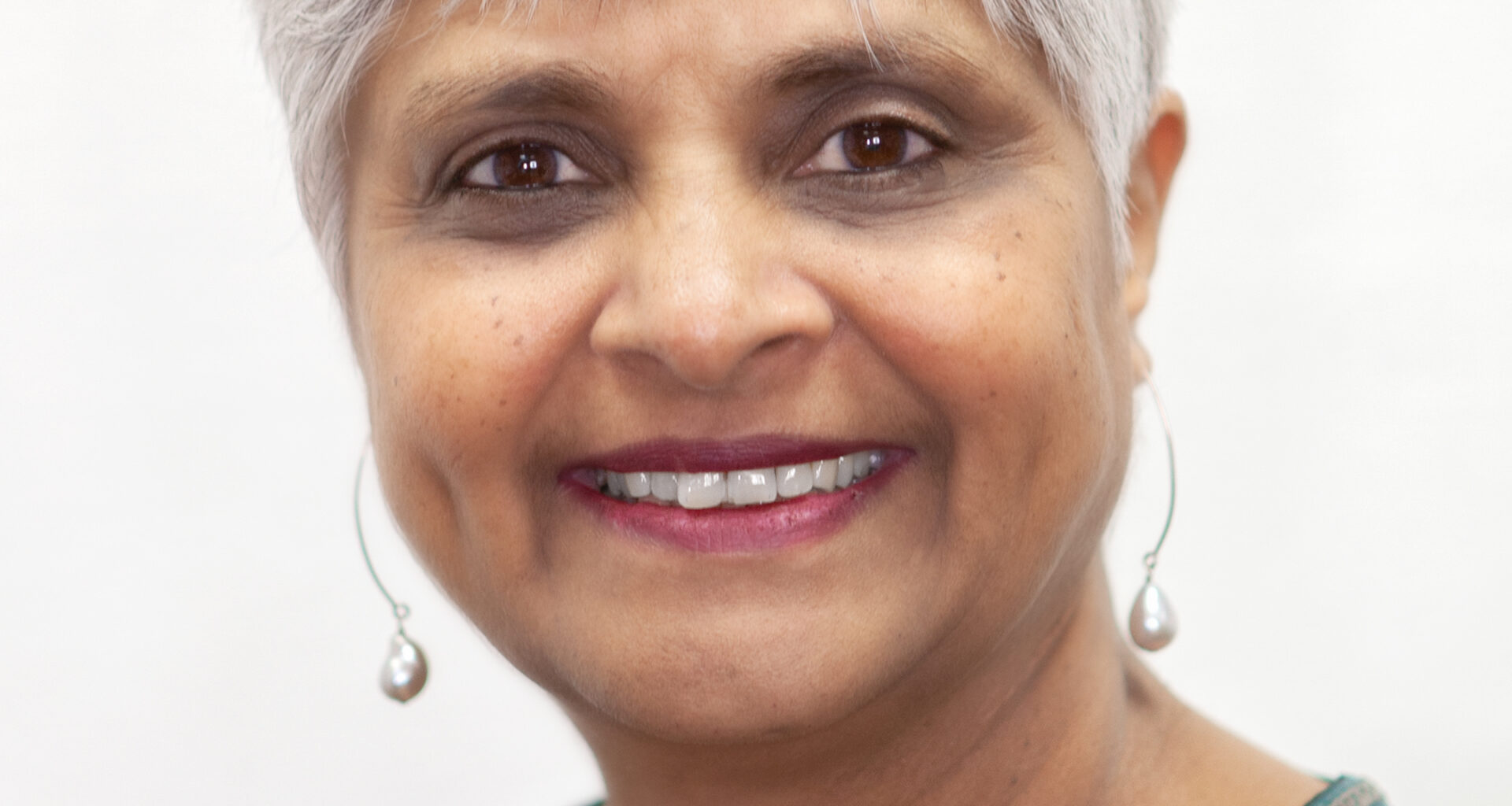

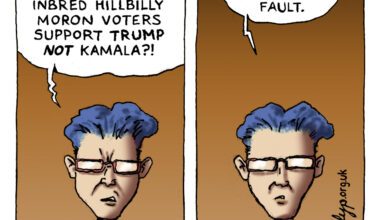
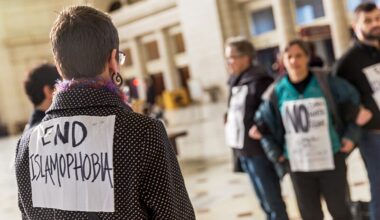
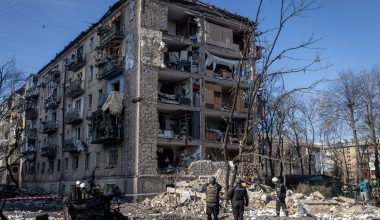

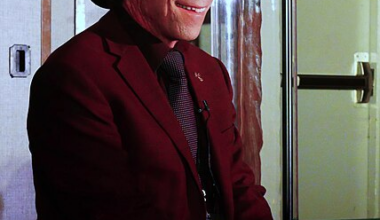
2 comments
Fantastic interview with a fantastic women. Virtually a freethinking secular manifesto.
“We need to move from identity politics to a politics of solidarity.”
That is true but it needs to be done by open and frank debate. The “We must do so with kindness, care and empathy for each other” is all very well as an aspiration but not a the expense of honesty and opinions that can be supported by evidence.
We have seen the results of the failure to tackle particular issues because of the fear of being labelled racist or Islamophobic in Telford, Oldham, Rotherham etc with vulnerable young children paying the price. Whilst I have often agreed with Ms Patel, I harbour doubts about the SBS and humanist positions on such issues.
I’m sorry but this ‘tell us what a lovely person you are’ non-interview has done nothing to establish how we move towards the “politics of solidarity” nor what that stance might look like. If is is “to challenge the fascism of regimes, such as the Hungarian or Polish regime, or the US under Trump” basically adopt the position of the far-left then no thank you. That is what led to the systemic failures to protect children and stand up for our right to free-speech etc.
Overall, could do a lot better.
Your email address will not be published. Comments are subject to our Community Guidelines. Required fields are marked *
Donate